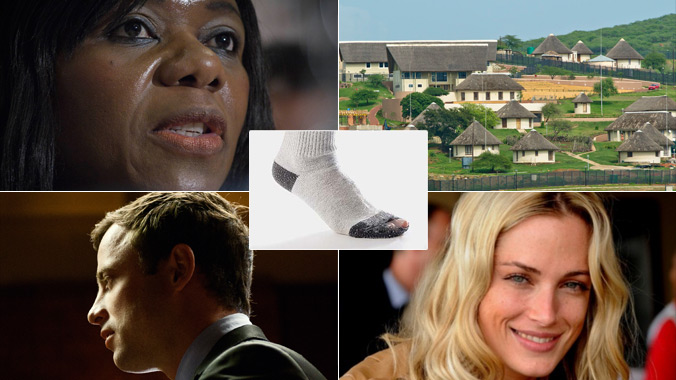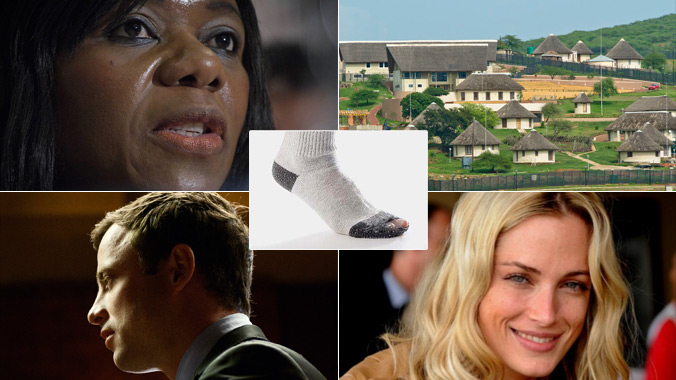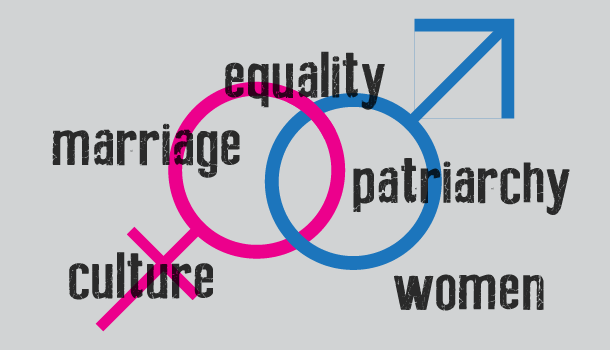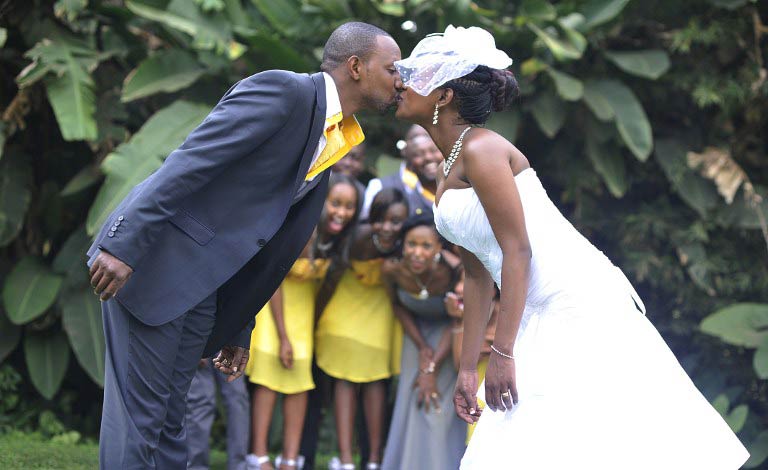Every two years – during the Africa Cup of Nations and the soccer World Cup, to be precise – I change my citizenship to my four self-assigned West African citizenships: Ghanaian, Nigerian, Malian and Ivorian. If you are a soccer fan, you will understand the necessity of this symbolic migration. East and Southern Africa have many things going for them. Soccer is not one of them, save for occasional flashes of hope from the Angolans. But in March this year, I found it necessary to symbolically emigrate from East and South Africa, for less sporty reasons: I could not handle the toxic gender politics in these two regions, in March. In an inadvertent collaboration, East and South Africa embodied the idiot’s guide to misogyny in March and, as they say, I just couldn’t deal.
On March 24, Kenyans received an apology from Dr Susan Mboya-Kidero, the wife of the Governor of Nairobi County. You see, her husband, Dr Evans Kudero, had been spotted in public wearing a torn sock. A local daily had found this so newsworthy that they published the governor’s foot with the torn sock. This photo apparently prompted the good senator’s wife to apologise to Kenyans for this ‘lapse’ in her responsibilities as a wife, and promise all offended Kenyans that she will “put stricter measures in place” to ensure this doesn’t happen again in future.
Eight years ago, another prominent politician’s wife apologised to Kenyans for a similar ‘lapse’ in vigilance over her husband’s feet. Apparently Kenyans take serious offence to these lapses in wifely duty by their politicians’ spouses. These wives’ failures in managing their husbands’ wardrobes have serious implications for service delivery in the city of Nairobi, the commercial engine of East and Central Africa.
So, Dr Mboya-Kidero told Kenyans she “takes full responsibility for this serious mistake” in her husband’s dressing. In her defence, she cited the notorious Nairobi traffic, which forces him to leave home at 5.30am, before she has a chance to ‘approve’ his dressing. Of course the good Nairobians will accept her apology, and will in fact forgive the little fact that the person who should be speaking to them is the good governor himself; and not about his torn socks, but about his plans to unblock Nairobi’s legendary traffic jams. In fact, they might also forgive the not-so-small fact that this same governor of torn socks allegedly slapped a woman politician in a public altercation a few months ago, sparking public uproar, a court case, and finally a court order that they reconcile.
But I digress. One of the beautiful things about South Africa for feminists is that you get to mark women’s month twice: in March, along with International Women’s Day, and in August, the national women’s month. March holds a special spot in my heart as the month when I formally encountered the language of feminist thought as a young undergraduate student, thanks to a group of politicised friends in university. Together, the four of us started marking International Women’s Day with themed public lectures and feminist marches on campus, much to the amusement of fellow students and some university staff members. But this March was a hard one to be a politicised woman tuned into East and South African public discourse.
Reflecting on it, I can’t help but note the ways in which women’s bodies occupied centre space in March in East and South Africa in very troubling ways. Of course women wrote brilliant books this month (the fantastic South Africa scholar and novelist, Zoe Wicomb, launched her new novel October); they won Oscars (Kenyan Lupita Nyong’o); and countless other ordinary women engaged in various acts of excellence, heroism, generosity and courage. But how were women figured in public discourse?
Reeva Steenkamp and Thuli Madonsela
During this month, two South African women dominated the public space, for very different reasons, with different responses: the murdered South African model Reeva Steenkamp occupied centre stage as her boyfriend and killer, Oscar Pistorius, stood trial to prove his case – that he didn’t kill her in moment of rage, but actually mistook her for ‘an intruder’, whom he presumably intended to kill. That this high-profile case’s defence essentially hangs on the assumed appropriateness of pumping bullets into an intruder – code for young black criminal – is a whole other conversation.
The second woman to occupy South African public discourse is Public Protector Advocate Thuli Madonsela, who delivered her report on the so-called Nkandlagate scandal relating to the opulent expenditure on the president’s security, which included a state-of-the-art chicken run.
What was curious for me was the spectrum of responses these two women attracted: distress over Reeva Steenkamp’s killing, with murmurs of a possible case of an abusive relationship; and the mixture of celebration and vilification of Advocate Thuli Madonsela for her findings on Nkandla. Significantly, despite attempts to frame these two cases differently – blue collar and white collar crime in South Africa – ultimately, the two women’s gender continued to haunt them; in the shape of a possibly emotionally abusive relationship that spilled over into tragic violence; and an equally tragic attack on the public protector’s person and looks, for daring to speak out against massive misuse of public funds.
Meantime, on the side strips of these high profile cases, two other largely unrelated stories unfolded: a man in Limpopo province offered to launch a series of awards to reward young girls for maintaining their virginity. He neglected to offer men a similar incentive. Apparently there is no premium on male virginity, nor for that matter is it necessary to incentivise them not to pressure young girls into sex.
Back in East Africa a few weeks earlier, the Museveni government arrived at the ‘scientific’ conclusion that homosexuality was a lifestyle choice, and therefore, decided to formally legislate against it. If we remember the ways in which homosexual men are often feminised in public discourse and how the abhorrent phenomenon of ‘corrective rape’ targeted at lesbian women has become a plague in South Africa, it is not hard to see that the common denominator in these two moments is anxieties about policing the female body and female sexuality. This push for female virginity is just one face of patriarchy via female sexual purity. The other face patriarchy wears is homophobia, precisely because same-sex love makes lesbian women symbolically unavailable to male sexual pleasure, hence the need to ‘correct’ them through rape. Gay men on the other hand sabotage patriarchy by deviating from the script of heterosexual consumption of women’s bodies and through their feminisation, which further threatens the ‘approved’ template of manhood by blurring the assumed rigid boundaries between masculinity and femininity.
It has been a long month, March. So, I mentally exiled myself to West Africa. But I know my other countries will disappoint at one point or another. In the meantime, I’ll hope for a better April. Being my birthday month, my biggest wish is a misogyny-free month for all women. Hopefully the universe and my ancestors are both listening.
Grace A. Musila is a Kenyan who studied in South Africa.









